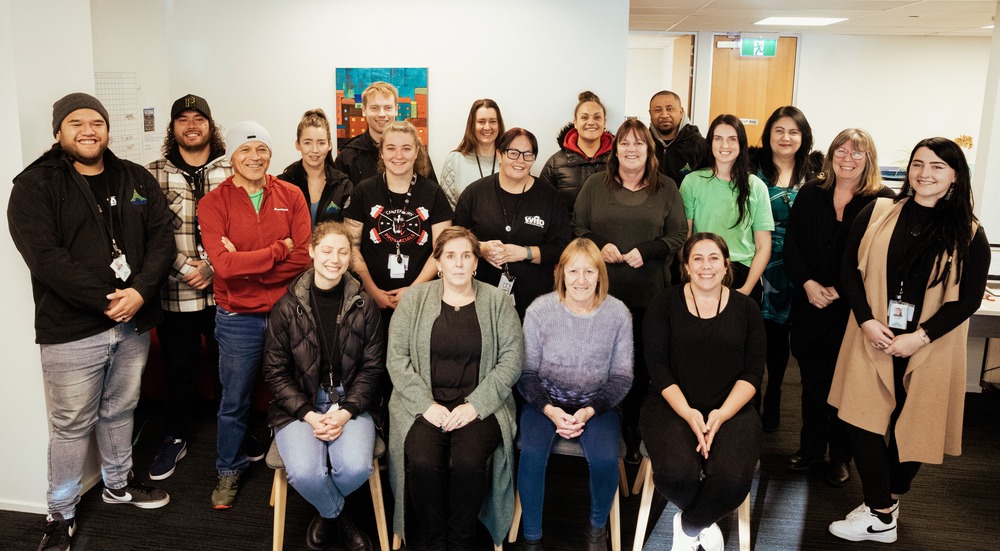Published on 31st of July, 2023

Since its launch in 2018, Housing First Ōtautahi (HFŌ) has expanded and evolved, overcoming challenges and adapting to provide the best support for people experiencing long-term homelessness in our city.
Having housed over 290 people during this time and now with 32 team members supporting 272 Kaewa (clients) both in housing and on the wait list, the service has achieved countless positive impacts for some of our city’s most vulnerable people.
“I’m proud that Housing First is a recognised name in Ōtautahi now, and that it’s well respected,” says Housing First Manager Nic Fleming. “I’m proud of the Kaewa that are housed and remain to be housed and all those that we support.”
Over the five years since HFŌ opened its doors, Covid-19 and the national lockdowns ranked among the most significant drivers of service innovation for the organisation. “It was a crazy time, 12-hour days, phone calls every second of the day, driving around picking people up off the street,” says Nic.
There have been many lessons learned along the way about the realities of long-term homelessness. “When we started we had mostly males and a few females,” says Nic. “Now 25% of our Kaewa are females and we have around 30 families. I never thought we’d have families. I never thought kids would live on the streets, or be couch-surfing. We’re starting to have more conversations about how we can try to stop the cycle of homelessness for those children.”
Community development initiatives to support people experiencing homelessness have expanded over the years, with The Commons Project recently celebrating its one-year anniversary. The Commons Project provides a space for those most vulnerable in the city to regularly connect, engage with services, share kai, and enjoy a range of creative pursuits. These weekly events are held at The Commons Gap Filler site and foster a valuable sense of community for those experiencing isolation, as well as enabling the team to reach more people in need of support who may otherwise have slipped between the cracks.
Looking to the future, the team have goals in two key areas. “Our first main goal for this year is to use community integration principles to better support Kaewa once they’re housed to overcome isolation and phobias associated with living in a house,” says Nic. “Second is harm reduction; we’re working on further upskilling our team in motivational interviewing techniques to support Kaewa with alcohol and drug addictions.”
Recent increases in Peer Support roles have been a positive development. “It’s an exciting space where we can incorporate their experience into the work we do and the decisions being made. Their lived experience is highly valued and allows them to build trust with Kaewa, bridging the gap between Kaewa and Keyworkers,” says Nic.
The lack of available suitable housing and barriers to access services continue to be the biggest obstacles to providing successful outcomes for Kaewa. “Some services put up barriers that prevent people who have high complex needs from accessing them which just serves to increase their suffering,” says Nic. “Housing is such a huge issue. We’ve always had the attitude that we’ll just keep going and keep doing it because no one else will.”
